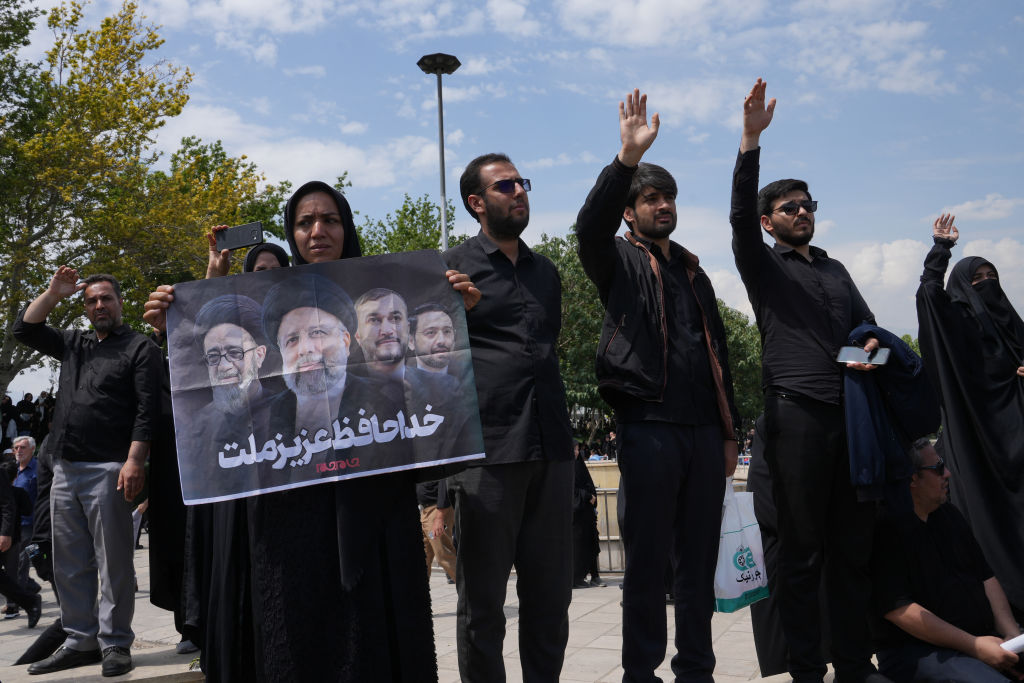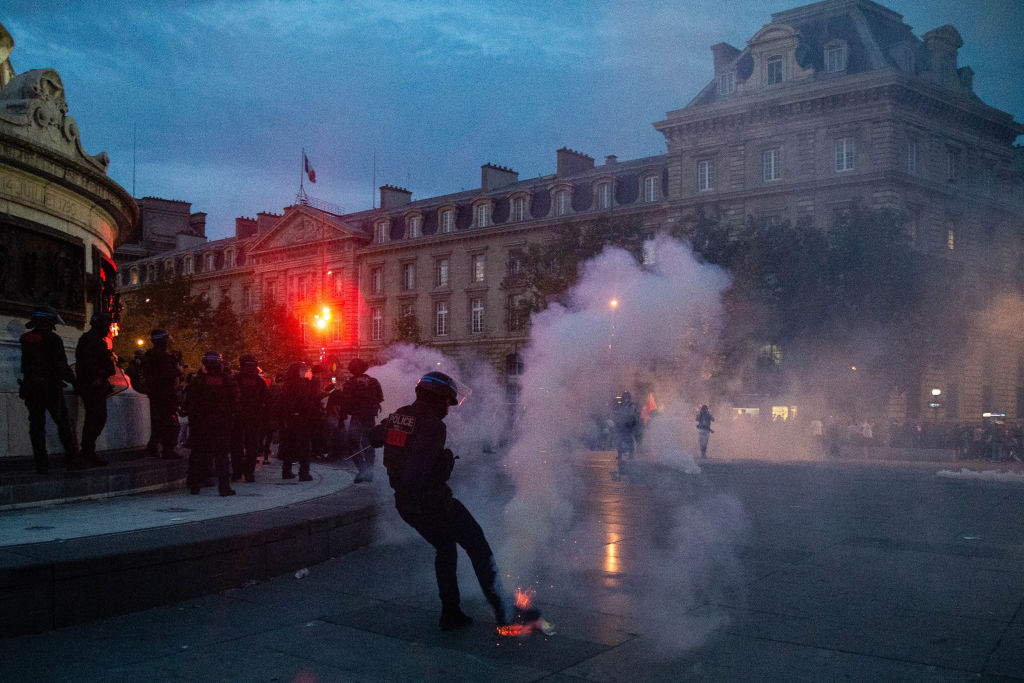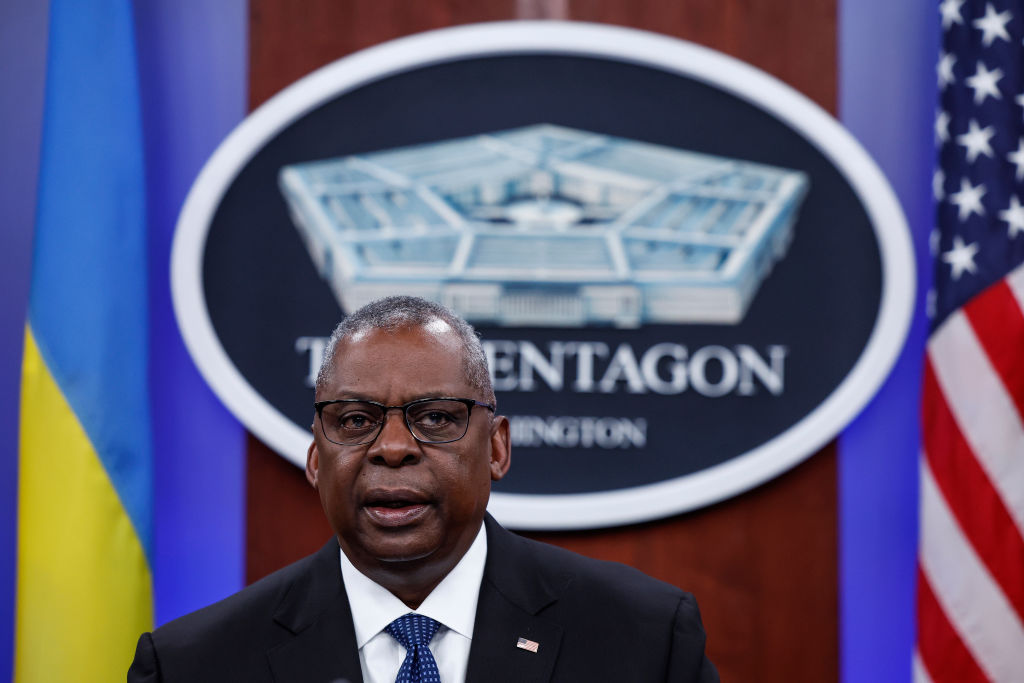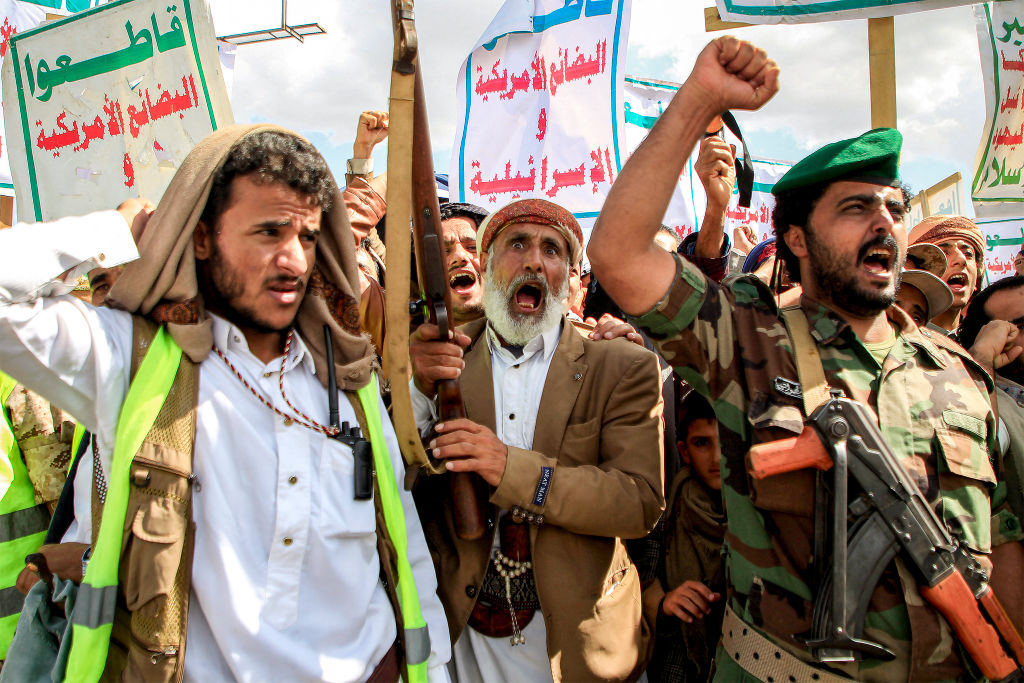The only lessons the Old World offers to America these days are cautionary.
Iran Beats the Drum

Tehran’s progress towards atomic weaponry is a major and distinct threat to global stability.
Americans recently have been reminded that the Islamic Republic, the leading state sponsor of global terrorism (according to the U.S. State Department) which has killed over 600 American soldiers in Iraq, is at war with the U.S. Right after the attempted assassination of Donald Trump, the following information was revealed:
The U.S. intelligence community has received an increasing amount of evidence to suggest that Iran is actively working on plots to kill former President Donald Trump, potentially in the lead up to the election in November… Iran has for years considered a plan to get back at Trump for his killing of top Iranian general Qassem Soleimani in 2020. But the officials said the intelligence has ratcheted up in recent months and officials have become more confident in Tehran’s intentions. They also said there may be more attempts on Trump’s life in the coming weeks.
As of now, the attempted assassination of Trump is not believed to be connected to this Iranian plot.
But that is not all. It was already known that the Iranians have been attempting to assassinate other Trump administration officials, including former Secretary of State Mike Pompeo, former Iran envoy Brian Hook, and former National Security Advisor John Bolton. On July 19, Houthi jihadists from Yemen attacked Tel Aviv in an early morning drone attack, seemingly targeting the U.S. embassy branch office. The Houthis, of course, are strong allies, or “partners”, with the Iranian regime, and like their partners, they despise the U.S.—their infamous, Iranian-inspired rallying cry is: “God is great, death to America, death to Israel, a curse upon the Jews, victory to Islam.”
As U.S. Secretary of State Antony Blinken has admitted, Iran continues to develop nuclear weapons, and its breakout time—the amount of time needed to produce enough weapons grade material for a nuclear weapon—“is now probably one or two weeks.”
The Iranian regime having nuclear weapons is an existential threat to global stability. Iran is currently constrained by its lack of a nuclear lever from pursuing extraordinary conventional and digital measures against Israel that could lead to a regional conflagration. Iran’s Russian and Chinese allies both backstop and check the Islamic Republic’s threats; nuclear capability would give Iran the confidence to project its hegemony even more aggressively, to the point where the U.S. would be forced either to engage in a hot war or to disengage from the Eastern Mediterranean entirely.
Neither President Joe Biden, Vice President Kamala Harris, nor the rest of the Biden administration are unlikely to do anything constructive to address this growing Iranian danger. Biden and Harris clearly share the belief of former President Barack Obama that the Iranian regime was provoked by the American support of the 1953 coup in Iran, and that the Islamic regime is simply misunderstood, and not necessarily an enemy of the U.S. Like President Obama, President Biden has spent his term appeasing Iran, and funding them with billions of dollars. If Kamala Harris wins the 2024 presidential election, the Islamic Republic will surely be allowed to produce nuclear weapons, and then will most probably use them, or threaten to use them, to get its way.
The U.S. may still be able to head this grave danger off at the pass. The U.S. should immediately reinstitute its “maximum pressure” strategy on Iran, which, during the Trump administration, essentially bankrupted the Islamic Republic and prevented it from causing terrorist chaos throughout the world. But it is also likely now, because of the past four years of appeasement, that some sort of sabotage like Stuxnet, or a military action, such as bombing the nuclear facilities, will be necessary to prevent the deployment of Iranian nuclear weapons.
Unfortunately, there are few options on the table. A full-scale invasion of Iran would be impossible, from either a tactical or strategic perspective. There is no domestic political appetite to expend trillions of dollars and thousands of American lives in pursuit of nation building exercises. And negotiations are of questionable value in the absence of a threat. “Iranians negotiate only after defeating their enemies,” explains noted authority on the region Harold Rhode. “Signaling a desire to talk before being victorious is, in Iranian eyes, a sign of weakness or lack of will to win.”
As a committed enemy of the U.S., with theocratic beliefs that favor war against the infidels, the Iranian regime must be prevented from acquiring nuclear weapons. The American government, which has appeased Tehran to a point of no return, must understand the threat and prepare suitable action.
The American Mind presents a range of perspectives. Views are writers’ own and do not necessarily represent those of The Claremont Institute.
The American Mind is a publication of the Claremont Institute, a non-profit 501(c)(3) organization, dedicated to restoring the principles of the American Founding to their rightful, preeminent authority in our national life. Interested in supporting our work? Gifts to the Claremont Institute are tax-deductible.
His latest scandal is the capstone of an abysmal tenure.
Progressive opposition to Israel’s military operation is rooted in racism and antisemitism.



